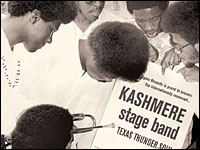 In his new book, Plain Secrets, Joe Mackall charts the tightly knit society of Ohio's Swartzentruber Amish (6/18/07 - 8:20). In this piece, Mackal discusses how he gained the trust of his Amish neighbor, and how "the community takes care of its own members even as it subverts their individuality, the plight of Amish women, and what it's really like to ride in a buggy."
In his new book, Plain Secrets, Joe Mackall charts the tightly knit society of Ohio's Swartzentruber Amish (6/18/07 - 8:20). In this piece, Mackal discusses how he gained the trust of his Amish neighbor, and how "the community takes care of its own members even as it subverts their individuality, the plight of Amish women, and what it's really like to ride in a buggy."Musings
- What do you find most surprising about Mackall's observation of the Amish way of life? What lessons, if any, can we draw from his work?
- Nearly everything about the Amish is controversial, except perhaps the undeniable visual beauty of their world, at least as captured in Bill Coleman's photographs. Which photographs do you find especially appealing and why?
- Here's an NPR piece on Amish teenagers (3-28-2009 - 12:28) and their unusual practice of Rumspringa. What lessons can we learn from this aspect of Amish life?
- The Amish use all sorts of complex technologies; what they reject basically is something we take for granted (except during hurricane season)--that is, electricity. Still, when you think about it, as much as we depend on electricity, almost all of us have special times, activities and so forth (even something as simple as taking a walk) that requires needs electricity or even batteries. Describe one such pleasurable experience or activity in your life that is free of electricity or batteries.

















